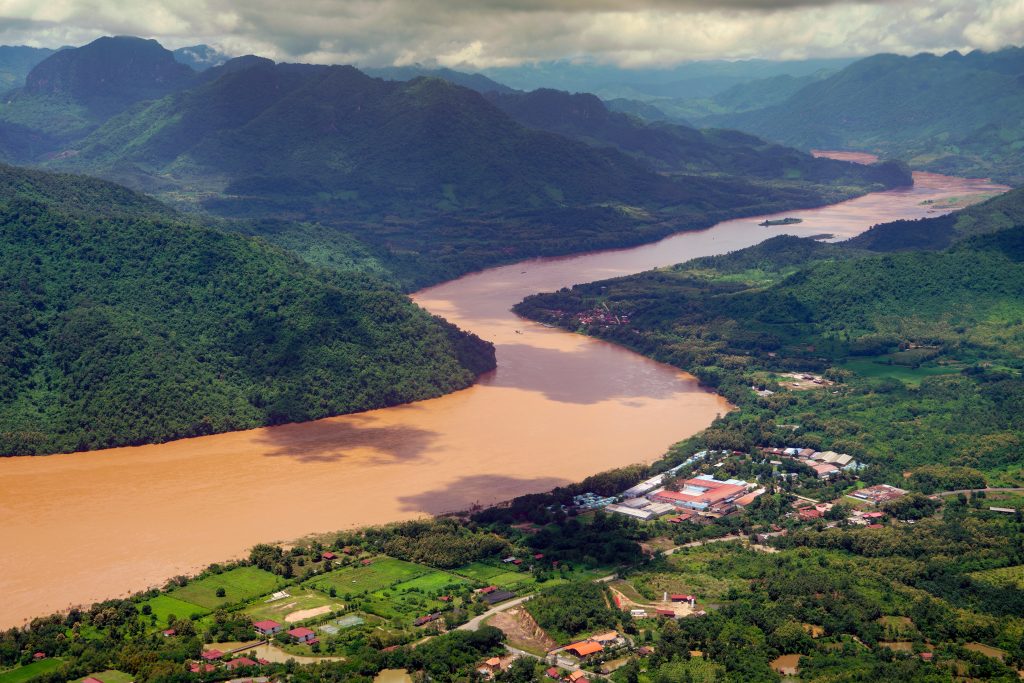Partnering with the Mekong River Commission
eWater has worked with the Mekong River Commission (MRC) since 2013.
Established in 1995 under the Mekong Agreement. The MRC is an inter-governmental agency working with the governments of Cambodia, Laos, Thailand and Vietnam with the goal of jointly managing the shared water resource and the sustainable development of the Mekong River.
Since 2013, eWater has partnered with the MRC on several projects.

Modelling in the Mekong River Basin
Beginning in 2013, eWater and the MRC worked together to trial the adoption of Source in the Mekong. This included developing a plugin to convert the MRC’s existing IQQM (Integrated Quantity and Quality Model) models to Source. Initially, work focused on the 3C catchment, and was progressively expanded to the whole of the Mekong.
eWater Source models are now used to simulate flows, sediment loads, nutrient levels, hydropower production, and agricultural and industrial water use to assess the impacts of water resources developments and to assess national water resource development plans from a basin-wide perspective.
Over the years, eWater has provided capacity building and technology transfer focusing on hands-on training and technical support to the Mekong River Commission Secretariat (MRCS) and MRC Member Countries (Cambodia, Laos, Thailand and Vietnam).
Mekong River Council Study
The MRC Council Study is the first water resource study of this scale for the Mekong Basin. In 2018-19, eWater contributed to the MRC Council Study using Source to integrate information and existing SWAT basin models via plugins.
MRC Procedures for Water Use Monitoring (PWUM)
eWater implemented pilot projects to test the Procedures for Water Use Monitoring in Laos, Thailand and Cambodia. The MRC Water Use Monitoring procedures provide for the visualisation and analysis of trade-offs in different water management scenarios. The implementation of the pilot projects using water resource modelling is a major step towards a basin-wide water use monitoring in the Mekong Basin.
Data and information systems upgrade
In May 2019, eWater was invited by the MRC Secretariat to support a two-year initiative to reinvigorate its data, information, modelling, forecasting and communication systems to provide enhanced and timely information to the public and MRC Member Countries.
eWater’s involvement was funded by the Australian Government, through the Department of Foreign Affairs and Trade.
The MRC’s systems upgrade covers data collection and acquisition, data and information management, data analysis and assessment, and data and information reporting and communication. The initiative will support the Secretariat to:
- provide enhanced and timely information to the public and MRC Member Countries
- implement key responsibilities, such as assessing the state of the Basin and tracking development in the Basin
- respond to emerging issues, such as changes in flow regimes
- strengthen its role as a regional knowledge hub.
Working closely with the Secretariat and other Australian experts, we prepared a concept design for the systems upgrade, it will see a transformation in the way the Secretariat collects, analyses, uses and communicates water information. The design concept was approved by the MRC Joint Committee in November 2019.
Other important aspects of the support include training in the use of Source for water management planning and the integration of operations and flood forecasting. In partnership with water agencies and regional modelling groups, we are also helping establish a Community of Practice and Best Practice Guidelines. Relationships with key academic and research stakeholders in the region have also been strengthened.
The project has included close collaboration with the MRC Secretariat and experts from the Australian Bureau of Meteorology, Geoscience Australia and the Murray-Darling Basin Authority, including review of existing systems, drafting of recommendations and presenting to members of the MRC and MRC Secretariat on the approaches used in Australia.
The project features as a success story in the MRC 2019 Annual Report.